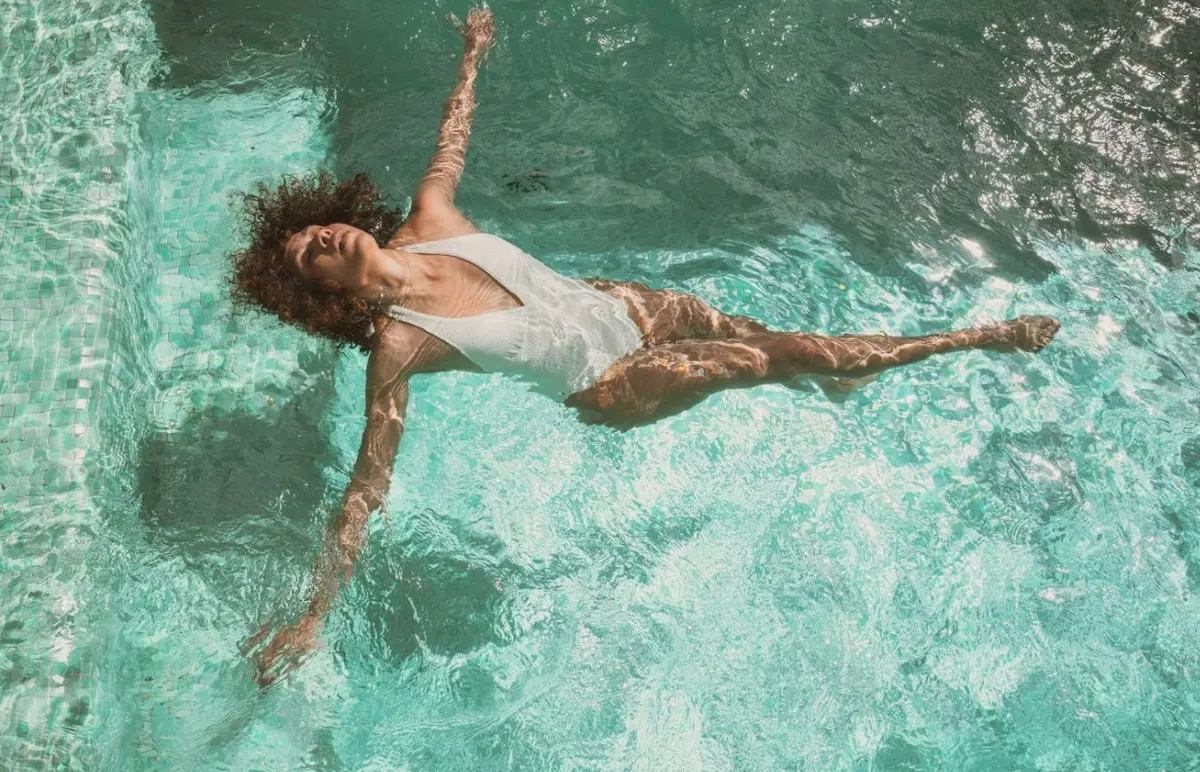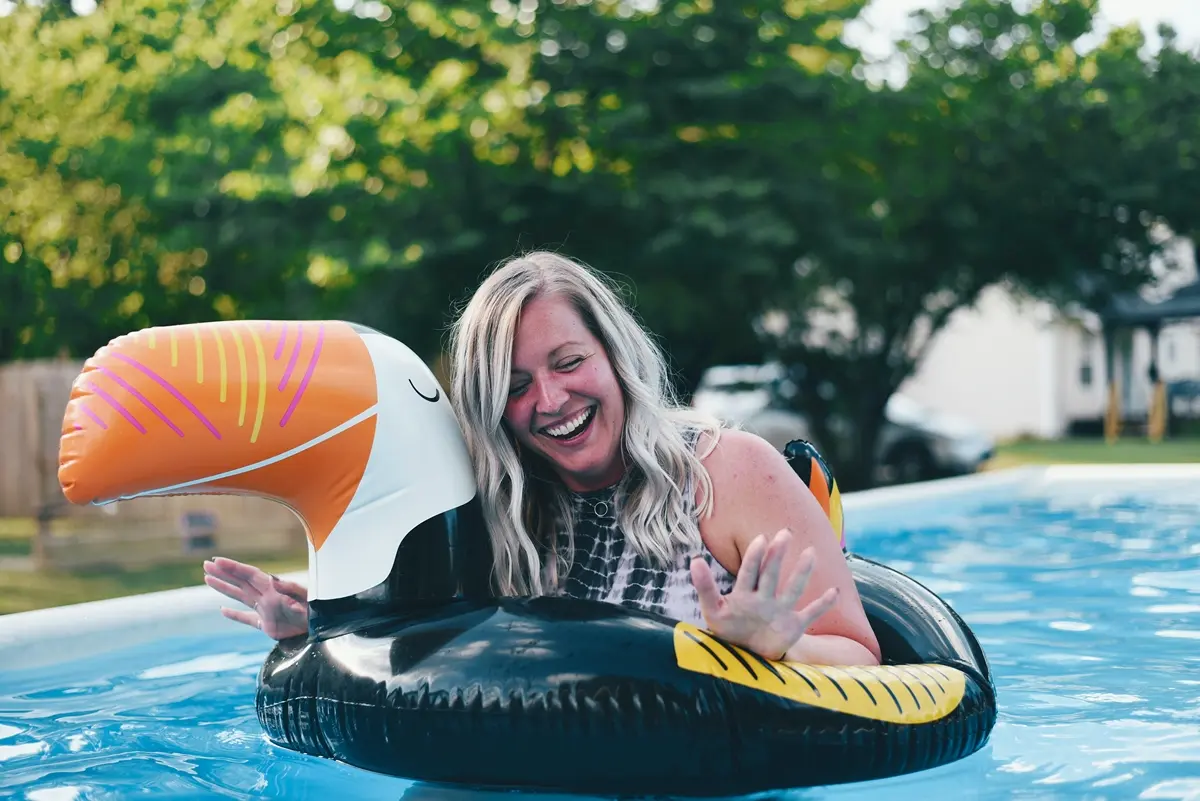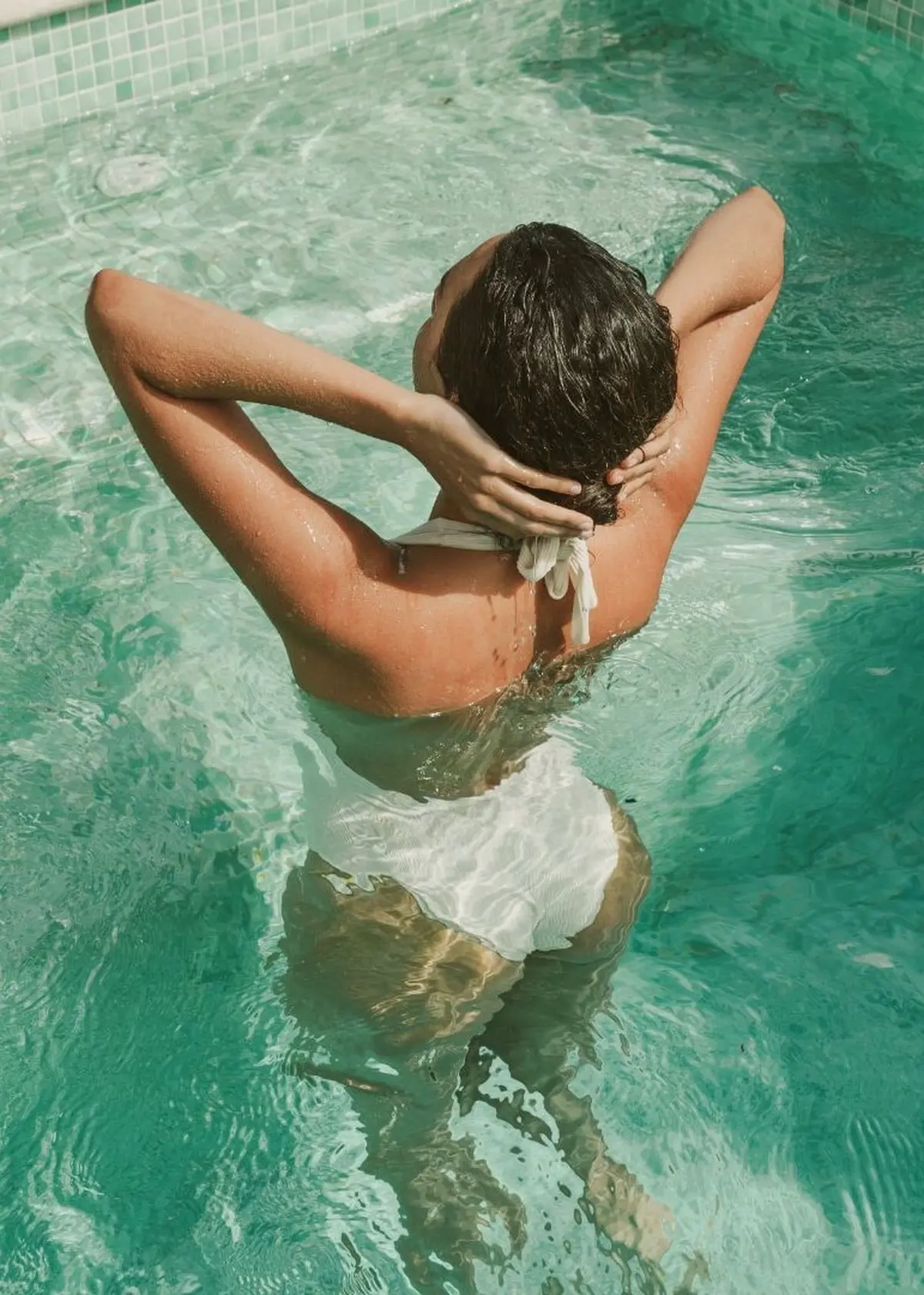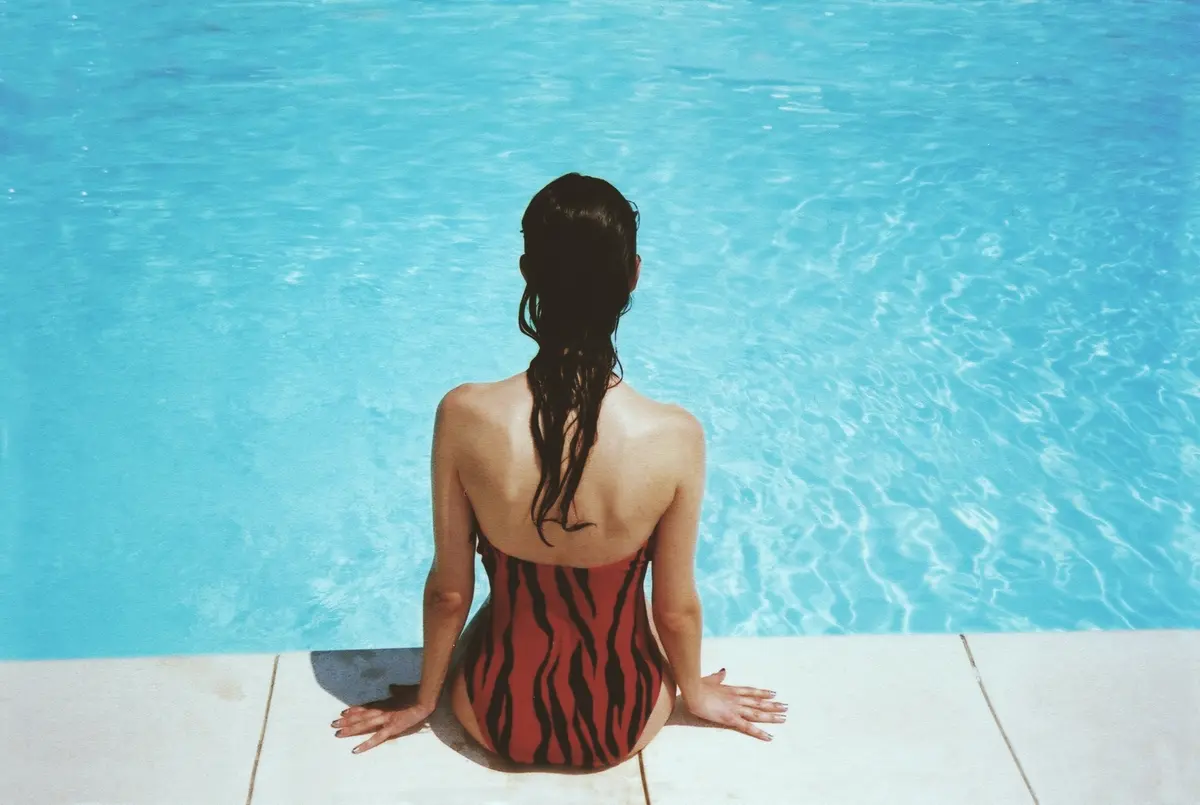After a refreshing swim in the pool, you might notice that your hair feels dull and your skin super dry. That’s precisely why proper skincare and hair care after swimming are crucial. We’re here to show you the impact chlorine water has on your skin and hair and share some helpful tips for taking care of them.
How does chlorine water damage the hair?

As we diligently protect our hair from UV damage during the summer, the question arises about the effects of saltwater and, especially, chlorine. Diluted chlorine in water has a crucial advantage: it kills microorganisms that enter the water through skin, hair, sweat, saliva, and urine, reducing the risk of infections. The small amount required for this purpose is not toxic. Nevertheless, chlorinated water can harm the skin and hair. It can lead to dry scalp, cause dandruff, or even alter the color of your hair. This is because both chlorine and salt increase the pH level of the water, which counteracts the acidic pH level of your hair.
The pH level of water is 7, while that of the human body is 5.5. Therefore, water alone already dries out the body, and chlorine intensifies this process. The same applies to the hair. Exposure to chlorinated water causes the hair to dry out and become dull and brittle. The frequency and duration of contact with chlorinated water play a significant role, as some studies show that competitive swimmers often suffer from bleached hair.

But hair doesn’t only bleach; it can even turn green! Blonde hair, in particular, is affected by this phenomenon caused by copper ions present in some water disinfectants. You can read here how to get green out of hair from a pool.
Now, here’s some good news: the rumor that chlorinated water increases hair loss is unfounded and hasn’t been scientifically confirmed. Nevertheless, chlorinated water doesn’t exactly deserve the Nobel Peace Prize. However, there are tips and tricks to protect your hair from dryness and discoloration caused by chlorinated water!
How to protect hair from swimming pool water

To remove chlorine from your hair, it’s best to prevent it from seeping in the first place. What can you use to protect your hair from chlorine? Before taking the plunge into the pool, take these precautions:
- Wash Your Hair Before Taking the Plunge into Chlorinated Water.
Every time, before you dive into the pool, make sure to wash your hair. Fully wetting your hair beforehand prevents it from absorbing too many chemicals from the chlorinated water. - Shield Your Hair with Oil.
Apply specific hair oil or natural oil like coconut oil to your hair. This protective layer helps repel chlorine and water while providing essential nutrients to your locks. - Wear a Swim Cap.
A swim cap not only safeguards your hair from chlorine water but also reduces water resistance while swimming.

Wash Your Hair After Swimming
Thoroughly rinse your hair after swimming to remove chlorine water and treat your hair with a conditioning rinse, especially if it has been recently colored or chemically treated.
Be Cautious with Dyed, Tinted, and Extended Hair
Going swimming after bleaching hair is a bad idea. After coloring or getting hair extensions, your hair becomes more delicate. To avoid unwanted reactions, discoloration, or breakage, refrain from swimming in chlorinated water during the first few days.
Chlorine’s Drying Effect on the Skin

Frequent bathing in chlorinated water can lead to unwanted reactions on your skin. People with sensitive and dry skin are especially affected, but even less sensitive skin types can experience this issue. Chlorine water tends to dry out the skin and exacerbate dryness, especially for those with already dry skin. This is due to the difference in pH levels between the skin and the pool water.
To give your skin some love after encountering chlorine water, be sure to shower after swimming to remove any lingering chlorine and pool water. Opt for a mild, moisturizing shower gel with a neutral pH that works wonders for your skin. Also, remember to shower before swimming, as well. When your skin cells and hair follicles are adequately moisturized beforehand, they can absorb less chlorine.
So, take these easy steps to protect your skin and hair, and you’ll be able to enjoy your swim time even more. Have a splashing good time in the pool, beautiful!
